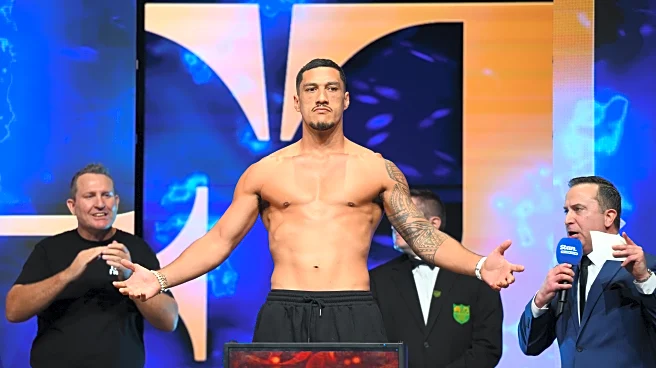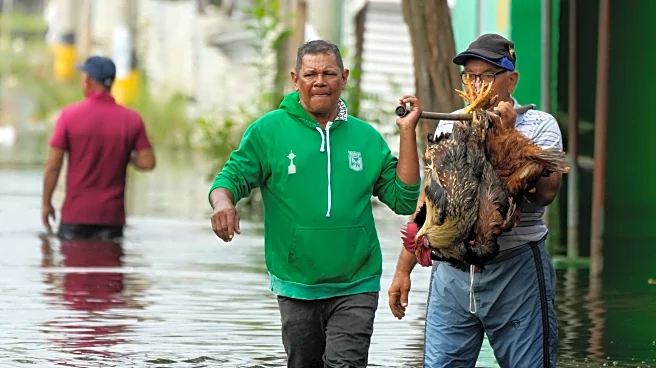What's Happening?
OpenAI has introduced new parental controls for ChatGPT to protect teenagers from graphic and potentially harmful content. These controls allow parents to link their accounts with their children's, aged 13 to 17, and set strict content boundaries. The initiative follows a lawsuit alleging that ChatGPT contributed to a teenager's suicide. OpenAI is also working on an age-prediction system to restrict sensitive content for underage users. The company acknowledges the challenges of moderating such a powerful tool and emphasizes the importance of creating an age-appropriate version of ChatGPT.
Why It's Important?
The introduction of these controls is crucial in addressing the growing concerns about AI's impact on children and teenagers. By providing parents with tools to manage their children's interactions with ChatGPT, OpenAI is taking a proactive approach to safeguarding young users. This move could set a precedent for other AI companies, prompting them to adopt similar measures. The changes also highlight the need for ongoing dialogue about the ethical responsibilities of AI developers in protecting vulnerable populations.
What's Next?
OpenAI plans to continue refining its safety features, including developing an age-prediction system to restrict sensitive content for underage users. The company is also considering more robust age verification methods. As these initiatives progress, OpenAI may face increased scrutiny from regulators and advocacy groups, which could lead to further adjustments in its approach to user safety. The company's efforts to address these concerns will be closely watched by industry stakeholders and could influence future regulatory developments.












